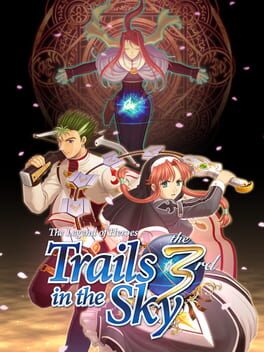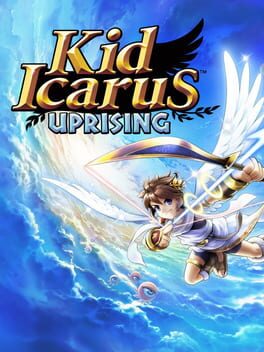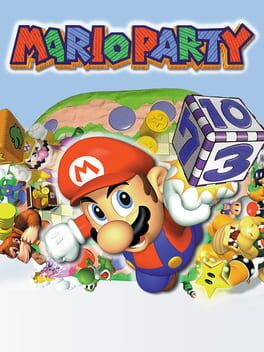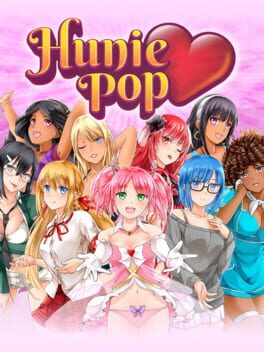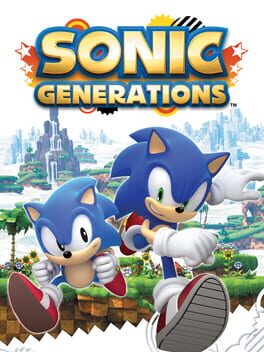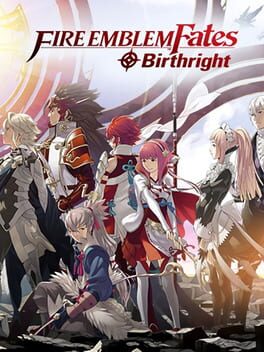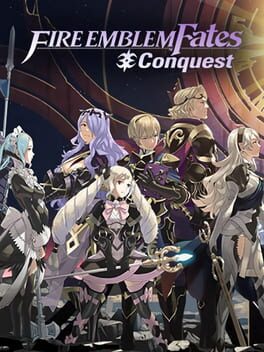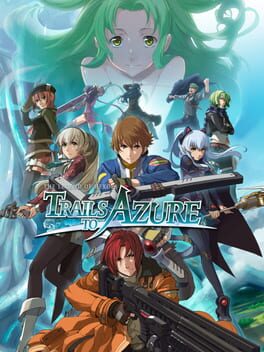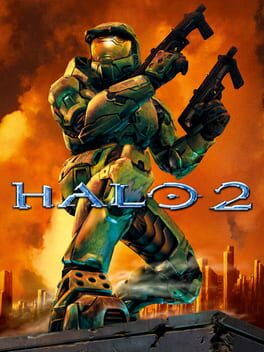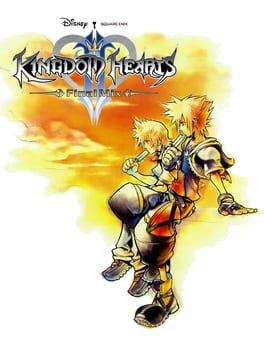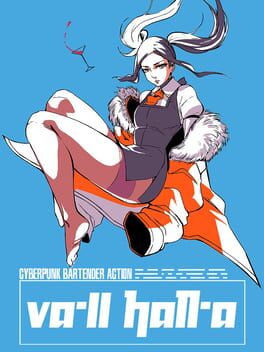dertdobber
This is the game in the trilogy I have the most mixed feelings about tbh.
It has the most fun and customizable gameplay, while the main story took a long time for me to care about. However, it could be argued that the main story isn't the appeal here, but the memory doors.
This game doesn't really advance the plot so much as it focuses on giving insight into the main cast of characters, of which there are 16 this time. This development is relegated to optional content via memory doors. They're good, but they can also really break your pace.
Essentially, this is less of a conclusion and more of an epilogue/interlude to the next arc of the Trails series, with the story being more of a journey through Kevin's character which I'd say was handled well. Though the pace only really picked up once enough was revealed.
While I'd say Kevin got a lot more interesting as a character in this game, I still wasn't thrilled with him as a protagonist, and I don't care much for Ries. I'd planned to give this game a lower score but the cast's development is too good and the end got me pretty emotional.
It has the most fun and customizable gameplay, while the main story took a long time for me to care about. However, it could be argued that the main story isn't the appeal here, but the memory doors.
This game doesn't really advance the plot so much as it focuses on giving insight into the main cast of characters, of which there are 16 this time. This development is relegated to optional content via memory doors. They're good, but they can also really break your pace.
Essentially, this is less of a conclusion and more of an epilogue/interlude to the next arc of the Trails series, with the story being more of a journey through Kevin's character which I'd say was handled well. Though the pace only really picked up once enough was revealed.
While I'd say Kevin got a lot more interesting as a character in this game, I still wasn't thrilled with him as a protagonist, and I don't care much for Ries. I'd planned to give this game a lower score but the cast's development is too good and the end got me pretty emotional.
2012
This is an incredibly ambitious game from a technical standpoint and features some pretty fun core gameplay on display, but hardware limitations and several design choices greatly dampen the experience.
Let's start with the technical limitations because this seems to be pretty agreed on from what I've seen:
While the use of the 3D slider is a great showcase of the feature, a lot of the spectacle of the flight sections is greatly diminished by being on such a small screen.
Then when it wants to be a 3D action game/third person shooter the camera is far too limiting and the movement often too stiff or awkward for the environments. I think it works best when fighting large enemies in arenas where you can dash around freely and track your opponent.
The dynamic difficulty system is something I've never liked in Smash's classic mode after Brawl, and I was hoping that I'd like its implementation a little bit more here with the inclusion of secret areas only accessible on higher levels, but sadly it has all the same problems. Rather than giving me the chance to learn enemy patterns the game simply gets easier for me upon death. It's so unsatisfying to have the game rob me of the opportunity to overcome a challenge unless I replay the entire level. Only thing I liked was how it would suggest a setting.
The story was also a bit of a letdown as well. There's some very well designed and likable characters in this game, but I found myself feeling very mixed about the dialogue. A lot of it is charming banter while much of it feels too self-referential in a Boost Era Sonic kinda way. The plot also cannot seem to stay focused. You never know what new element will be suddenly introduced at the beginning of a chapter. The main villain gets revealed and then suddenly you're fighting someone else, so you do a few chapters fighting against that army but wait! Aliens appeared, so we all gotta team up against them!
My favorite part by far is the Chaos arc. If the majority of the game had the tone of Chapter 18, I may have loved this story. I also really liked a moment towards the end where Dark Pit confronts Palutena and Viridi to make them admit their blame in all of this conflict.
If anything I think this was a strong proof of concept that if they tapped into to what worked and left out a lot of what didn't, this could be a truly special franchise for Nintendo. With a stronger narrative focus and better hardware, this series definitely has potential.
Let's start with the technical limitations because this seems to be pretty agreed on from what I've seen:
While the use of the 3D slider is a great showcase of the feature, a lot of the spectacle of the flight sections is greatly diminished by being on such a small screen.
Then when it wants to be a 3D action game/third person shooter the camera is far too limiting and the movement often too stiff or awkward for the environments. I think it works best when fighting large enemies in arenas where you can dash around freely and track your opponent.
The dynamic difficulty system is something I've never liked in Smash's classic mode after Brawl, and I was hoping that I'd like its implementation a little bit more here with the inclusion of secret areas only accessible on higher levels, but sadly it has all the same problems. Rather than giving me the chance to learn enemy patterns the game simply gets easier for me upon death. It's so unsatisfying to have the game rob me of the opportunity to overcome a challenge unless I replay the entire level. Only thing I liked was how it would suggest a setting.
The story was also a bit of a letdown as well. There's some very well designed and likable characters in this game, but I found myself feeling very mixed about the dialogue. A lot of it is charming banter while much of it feels too self-referential in a Boost Era Sonic kinda way. The plot also cannot seem to stay focused. You never know what new element will be suddenly introduced at the beginning of a chapter. The main villain gets revealed and then suddenly you're fighting someone else, so you do a few chapters fighting against that army but wait! Aliens appeared, so we all gotta team up against them!
My favorite part by far is the Chaos arc. If the majority of the game had the tone of Chapter 18, I may have loved this story. I also really liked a moment towards the end where Dark Pit confronts Palutena and Viridi to make them admit their blame in all of this conflict.
If anything I think this was a strong proof of concept that if they tapped into to what worked and left out a lot of what didn't, this could be a truly special franchise for Nintendo. With a stronger narrative focus and better hardware, this series definitely has potential.
1998
For the series' first outing, Mario Party tried a lot of ideas and realized that many of them were no good. Anyone familiar with later titles will find many of the decisions here baffling, which in some ways makes this game feel incredibly unique.
The two biggest problems this game has for me is it's boring yet frustratingly designed board layouts, and the amount of unbalanced minigames it has. You may have fun with this game (except on the joystick rotating mini-games, you will never have fun with those) looking at it historically to see where this series began, but don't try to get too competitive with it because this game probably has the least strategic elements of any pre-Mario Party 9 game.
The two biggest problems this game has for me is it's boring yet frustratingly designed board layouts, and the amount of unbalanced minigames it has. You may have fun with this game (except on the joystick rotating mini-games, you will never have fun with those) looking at it historically to see where this series began, but don't try to get too competitive with it because this game probably has the least strategic elements of any pre-Mario Party 9 game.
2015
So since it's Valentine's Day and I have nothing better to do, I am going to write a review for Huniepop, which I just finished earlier today.
Overall it's a pretty fun game, with puzzles that get more challenging with each date (regardless of which order you do them in, for instance you can have maxed out one girl but the first date for another will still be harder). These puzzles feel very reminiscent of mobile games like Candy Crush, but since I haven't played those I'm not sure how similar it is. This could very well be another Puyo Puyo/Dr. Robotnik's Mean Bean Machine situation where it's copy & pasted from another game, and I wouldn't know. I can say however that my experience with these mechanics was pretty enjoyable.
I liked how you could invest in certain stats to make the puzzles easier by spending time with a girl. This visual novel side of the game certainly has its charm, but wears thin pretty quickly. After your initial introductions it ultimately amounts to asking questions about them, remembering what you've already asked, and remembering the answers to those questions (aka checking her profile every time you talk to her) and eventually you will reach the point where you're just doing it for the resources so you can make your next puzzle easier.
Speaking of resources, there are also date gifts that you can receive from giving the right items to a girl. What you receive, however, is completely random. I kinda hated that because there was a specific one I started to really want towards the end but could never seem to get. What these do is very important though, as they're arguably more useful than the stats you level up. You can have up to six with you on any given date, and they let you manipulate the board in a number of ways, like turning one type of token into another, giving you more moves, making a certain type appear more often, etc. These are great, but I wish there was a way you could choose which ones you wanted to buy instead of having them be random, especially when you have a limited inventory meaning that you can receive date gifts you've already thrown out to make room for items you'll actually use.
It probably goes without saying but this game is best enjoyed if you're in a horny mood already. Going through and maxing out some of the girls I wasn't as interested in was probably the most boring this game got for me, so try not to let it feel like a chore. Just go in with the right mood and a lighthearted mindset to best enjoy the often silly dialogue, the puzzles, and most importantly your "prize" for completing them.
Overall it's a pretty fun game, with puzzles that get more challenging with each date (regardless of which order you do them in, for instance you can have maxed out one girl but the first date for another will still be harder). These puzzles feel very reminiscent of mobile games like Candy Crush, but since I haven't played those I'm not sure how similar it is. This could very well be another Puyo Puyo/Dr. Robotnik's Mean Bean Machine situation where it's copy & pasted from another game, and I wouldn't know. I can say however that my experience with these mechanics was pretty enjoyable.
I liked how you could invest in certain stats to make the puzzles easier by spending time with a girl. This visual novel side of the game certainly has its charm, but wears thin pretty quickly. After your initial introductions it ultimately amounts to asking questions about them, remembering what you've already asked, and remembering the answers to those questions (aka checking her profile every time you talk to her) and eventually you will reach the point where you're just doing it for the resources so you can make your next puzzle easier.
Speaking of resources, there are also date gifts that you can receive from giving the right items to a girl. What you receive, however, is completely random. I kinda hated that because there was a specific one I started to really want towards the end but could never seem to get. What these do is very important though, as they're arguably more useful than the stats you level up. You can have up to six with you on any given date, and they let you manipulate the board in a number of ways, like turning one type of token into another, giving you more moves, making a certain type appear more often, etc. These are great, but I wish there was a way you could choose which ones you wanted to buy instead of having them be random, especially when you have a limited inventory meaning that you can receive date gifts you've already thrown out to make room for items you'll actually use.
It probably goes without saying but this game is best enjoyed if you're in a horny mood already. Going through and maxing out some of the girls I wasn't as interested in was probably the most boring this game got for me, so try not to let it feel like a chore. Just go in with the right mood and a lighthearted mindset to best enjoy the often silly dialogue, the puzzles, and most importantly your "prize" for completing them.
2020
2011
A while back I decided to revisit all of Fates, and take it in what many would consider to be the recommended order (BR->CQ->RV) for the full experience. As someone who remembered Birthright being my least favorite at the time, I enjoyed this replay far more than I expected myself to.
Fates, as a whole, is a game that I think has far more merits than it is often given credit for. It has many flaws, most of which are extremely apparent and off putting at first glance (Corrin doesn’t really work as an avatar character and also really shouldn’t have had the option of marrying their siblings, each route’s story makes a few questionable decisions, it’s weirdly horny at times for some reason, My Castle is a bit of a convoluted mess, the baby dimension is stupid, etc.), but beneath all of that is an incredibly fun game with a likable cast and engaging mechanics that offer more strategic options than most games in the Fire Emblem series.
I see the gameplay as an evolution of Awakening's combat. For one, the way pair-up is handled in this game means having to make decisions on whether you want to play offensively or defensively. Even the children, while logically at odds with the story, make for an incredibly fun mechanical addition, and the way their paralogues are designed and the way that the level you recruit them scales with which chapter you're on greatly reduced the tedium of giving them the right skills and being battle ready for the main story. Weapon durability was also removed entirely, in favor of balancing certain weapons with natural drawbacks so that there would rarely be just one weapon a unit would use in every situation. The Weapon Triangle also received an advancement, now to include Tomes, Daggers, and Bows, which each contain the advantage and disadvantage of Swords, Lances, and Axes respectively. This places even more importance on your choice of weapon and makes it so that nearly every player unit has matchups that they wish to avoid.
Birthright in particular also feels unique in this series for its primarily eastern aesthetic that features many unique weapons and classes, which while accessible in other routes take center stage here. As far as other route-specific points go, this one was pretty straightforward with mainly "Route the Enemy" and "Defeat Boss" maps without trying anything to gimmicky aside from some Dragon Veins here and there. This is part of the reason I think Birthright is a good starting place for someone looking to fully experience Fates. I also found myself more engaged with the story this time, with certain moments at the end being genuinely impactful.
I think the main takeaway from my experience here is that there's no getting around the fact that certain aspects of the game will leave you shaking your head, but most of these are incredibly minor issues that don't really hinder the experience all that much from the perspective of someone fully aware of these flaws. As long as you're willing to accept some of these annoyances and suspend your disbelief a little, there's a worthwhile experience to be found here.
Fates, as a whole, is a game that I think has far more merits than it is often given credit for. It has many flaws, most of which are extremely apparent and off putting at first glance (Corrin doesn’t really work as an avatar character and also really shouldn’t have had the option of marrying their siblings, each route’s story makes a few questionable decisions, it’s weirdly horny at times for some reason, My Castle is a bit of a convoluted mess, the baby dimension is stupid, etc.), but beneath all of that is an incredibly fun game with a likable cast and engaging mechanics that offer more strategic options than most games in the Fire Emblem series.
I see the gameplay as an evolution of Awakening's combat. For one, the way pair-up is handled in this game means having to make decisions on whether you want to play offensively or defensively. Even the children, while logically at odds with the story, make for an incredibly fun mechanical addition, and the way their paralogues are designed and the way that the level you recruit them scales with which chapter you're on greatly reduced the tedium of giving them the right skills and being battle ready for the main story. Weapon durability was also removed entirely, in favor of balancing certain weapons with natural drawbacks so that there would rarely be just one weapon a unit would use in every situation. The Weapon Triangle also received an advancement, now to include Tomes, Daggers, and Bows, which each contain the advantage and disadvantage of Swords, Lances, and Axes respectively. This places even more importance on your choice of weapon and makes it so that nearly every player unit has matchups that they wish to avoid.
Birthright in particular also feels unique in this series for its primarily eastern aesthetic that features many unique weapons and classes, which while accessible in other routes take center stage here. As far as other route-specific points go, this one was pretty straightforward with mainly "Route the Enemy" and "Defeat Boss" maps without trying anything to gimmicky aside from some Dragon Veins here and there. This is part of the reason I think Birthright is a good starting place for someone looking to fully experience Fates. I also found myself more engaged with the story this time, with certain moments at the end being genuinely impactful.
I think the main takeaway from my experience here is that there's no getting around the fact that certain aspects of the game will leave you shaking your head, but most of these are incredibly minor issues that don't really hinder the experience all that much from the perspective of someone fully aware of these flaws. As long as you're willing to accept some of these annoyances and suspend your disbelief a little, there's a worthwhile experience to be found here.
As a follow-up to my review of Birthright, I'm mostly going to focus on aspects of Fates specific to Conquest, check out the first one if you want to know some of my more general thoughts.
Though my memories of Conquest were pretty fond, I wasn't quite prepared for how this game shakes up the formula when it comes to design. I played through Birthright on Hard with little to no issue, but Conquest really challenged me even early on. The maps are designed in a much more deliberate manner, where encounters feel like they are meant to be approached in a certain way. Sometimes you'll be forced to interact with map specific mechanics in order to deal with these enemy formations, making some battles feel like a puzzle where you have to find the right approach in order to overcome the obstacle in front of you. It's this that makes Conquest a challenging yet satisfying experience. Make sure you're very familiar with the mechanics of Fates going in or else this will be a brutal experience.
I think with how much I enjoy the mechanics, I am very close to calling Conquest the best gameplay in the series. The only issues I really have with it is some of the enemy skills can be a bit much. I'm a bit split on this because I like how a lot of passive, enemy phase oriented tactics are discouraged thanks to the effects or debuffs these inflict, but towards the end of the game when everything is running around with these skills it's easy to get destroyed quickly, which leads to especially cautious play.
While I don't think anyone put off by the writing in Birthright will be won over by Conquest, I do think it's a bit of an improvement in terms of tone and theme. I really enjoy this idea of walking a darker path in order to achieve peace, where Birthright never really had you questioning if you had made the correct choice in such a way. This moral conflict extends to the Nohrian siblings who you side with in this route, and makes them a more interesting cast compared to their counterparts, especially Leo and Xander. Despite how obviously evil King Garon is, they still look up to their father and want to believe that there’s good in him, while none of the Hoshidan siblings question themselves in such a way. I think I also find their relationship with Corrin has more depth because of the fact that this is the family they've known all their life, and the significance of this shines through in their supports.
Overall, I think this game is pretty fantastic even if the difficulty can be a bit overwhelming at times. I think that with a Divine Pulse equivalent, this is exactly the type of design I would love to see the series explore in future titles. It's Fates at its most experimental and after visiting it again years later I'd say the result is truly a highly satisfying experience.
Though my memories of Conquest were pretty fond, I wasn't quite prepared for how this game shakes up the formula when it comes to design. I played through Birthright on Hard with little to no issue, but Conquest really challenged me even early on. The maps are designed in a much more deliberate manner, where encounters feel like they are meant to be approached in a certain way. Sometimes you'll be forced to interact with map specific mechanics in order to deal with these enemy formations, making some battles feel like a puzzle where you have to find the right approach in order to overcome the obstacle in front of you. It's this that makes Conquest a challenging yet satisfying experience. Make sure you're very familiar with the mechanics of Fates going in or else this will be a brutal experience.
I think with how much I enjoy the mechanics, I am very close to calling Conquest the best gameplay in the series. The only issues I really have with it is some of the enemy skills can be a bit much. I'm a bit split on this because I like how a lot of passive, enemy phase oriented tactics are discouraged thanks to the effects or debuffs these inflict, but towards the end of the game when everything is running around with these skills it's easy to get destroyed quickly, which leads to especially cautious play.
While I don't think anyone put off by the writing in Birthright will be won over by Conquest, I do think it's a bit of an improvement in terms of tone and theme. I really enjoy this idea of walking a darker path in order to achieve peace, where Birthright never really had you questioning if you had made the correct choice in such a way. This moral conflict extends to the Nohrian siblings who you side with in this route, and makes them a more interesting cast compared to their counterparts, especially Leo and Xander. Despite how obviously evil King Garon is, they still look up to their father and want to believe that there’s good in him, while none of the Hoshidan siblings question themselves in such a way. I think I also find their relationship with Corrin has more depth because of the fact that this is the family they've known all their life, and the significance of this shines through in their supports.
Overall, I think this game is pretty fantastic even if the difficulty can be a bit overwhelming at times. I think that with a Divine Pulse equivalent, this is exactly the type of design I would love to see the series explore in future titles. It's Fates at its most experimental and after visiting it again years later I'd say the result is truly a highly satisfying experience.
This game is a culmination of everything that I love about the mechanics of this series, with a story that rides off the ending of the previous game into a crescendo that continues to grow until the very end.
This is one of the few game worlds that really motivates me to seek out everything that it has to offer, even down to being regularly updated on every NPC's life and reaction to events. People praise this series for its worldbuilding and I'd always shrugged that off as something not really all that important, but the amount of detail that goes into breathing life into your surroundings is a huge part of what makes Crossbell such a charming setting. It almost makes me feel bad to leave it, and yet this game did such a good job of setting up for the following games that I can't help but be excited for them. But regardless of how I end up feeling about the rest of this series, I'm very grateful that I made it to this point.
This is about as perfect as a game can get at achieving everything that I love about this medium.
This is one of the few game worlds that really motivates me to seek out everything that it has to offer, even down to being regularly updated on every NPC's life and reaction to events. People praise this series for its worldbuilding and I'd always shrugged that off as something not really all that important, but the amount of detail that goes into breathing life into your surroundings is a huge part of what makes Crossbell such a charming setting. It almost makes me feel bad to leave it, and yet this game did such a good job of setting up for the following games that I can't help but be excited for them. But regardless of how I end up feeling about the rest of this series, I'm very grateful that I made it to this point.
This is about as perfect as a game can get at achieving everything that I love about this medium.
2004
As a sequel to Combat Evolved, the best way to describe Halo 2 is: impressive. The game takes a big step up when it comes to presentation, boasting some incredibly impressive cinematics and setpieces for its time, which give the series much more narrative substance than what the previous game provided. The story does a good job of contrasting the two major factions and giving more personality to the characters from the first game while introducing new ones as well such as Arbiter.
The game also adds new weapons, vehicles, and even the ability to dual wield! So far this sounds like far and away an improvement over the original, and yet I couldn't quite feel that it was, at least not by all that much. While I found a lot of the new weapons fun to use, some of the new vehicles were pretty slow and the sections featuring them ended up overstaying their welcome, while dual wielding kind of felt a little superficial to me and I ended up not using it all that much since being able to melee and throw grenades were options not really worth giving up.
If anything, it felt to me as if the ability to dual wield was used as an excuse to throw in a lot of bulky enemies, especially towards the end when you had to fight all of the brutes. I gotta say that having more enemies that take longer to defeat just made certain parts a bit more of a drag to me. Speaking of enemy types, there's several factions within the game that are often at war with each other, sometimes even within the faction itself, and while there were moments like this in CE they didn't feel as numerous to the point where it often felt better to leave them alone to let them duke it out. Even the "big hype" moment of the game where it started playing Breaking Benjamin was like that—so much that Cortana even told me I should just "sit this one out" and that seemed like a waste of the theme.
Finally, let me get to the story. Combat Evolved's narrative was fairly simple but pretty underdeveloped, and yet it still found ways to create effective moments such as the first breakout of The Flood. They are, of course, back in this game but they just aren't able to send the same chills that their masterful introduction did. It was incredible storytelling through gameplay, and I never found anything of that level here. The cutscenes of course do make up for this as there's much more to dive into than what CE had to offer, but even so while the story was appreciated I wouldn't consider it compelling enough for me to consider this the clearly superior game. Part of this I feel comes from the inclusion of Arbiter who, while isn't a bad character in his own right, splits up the narrative between him and Master Chief with the events happening concurrently. This sounds like a cool idea, but it made certain moments feel disjointed as I wasn't following exactly who was where and at what point so I'd find it surprising to see my other protagonist in one place when I never took him there. It just didn't really work for me as well as it should have, and in a way the increased story focus in this game ironically made me less invested in the narrative than I was in CE. The abrupt ending certainly didn't make matters any better, even if I have to admit that the cliffhangers made for some cool scenes.
All in all, I probably sounded more negative than I should be considering the score, but I should emphasize that most of what I enjoyed about the first game is still here and presented in a flashier package so I'd still recommend it pretty highly. I guess I just hoped that I'd like it even more.
The game also adds new weapons, vehicles, and even the ability to dual wield! So far this sounds like far and away an improvement over the original, and yet I couldn't quite feel that it was, at least not by all that much. While I found a lot of the new weapons fun to use, some of the new vehicles were pretty slow and the sections featuring them ended up overstaying their welcome, while dual wielding kind of felt a little superficial to me and I ended up not using it all that much since being able to melee and throw grenades were options not really worth giving up.
If anything, it felt to me as if the ability to dual wield was used as an excuse to throw in a lot of bulky enemies, especially towards the end when you had to fight all of the brutes. I gotta say that having more enemies that take longer to defeat just made certain parts a bit more of a drag to me. Speaking of enemy types, there's several factions within the game that are often at war with each other, sometimes even within the faction itself, and while there were moments like this in CE they didn't feel as numerous to the point where it often felt better to leave them alone to let them duke it out. Even the "big hype" moment of the game where it started playing Breaking Benjamin was like that—so much that Cortana even told me I should just "sit this one out" and that seemed like a waste of the theme.
Finally, let me get to the story. Combat Evolved's narrative was fairly simple but pretty underdeveloped, and yet it still found ways to create effective moments such as the first breakout of The Flood. They are, of course, back in this game but they just aren't able to send the same chills that their masterful introduction did. It was incredible storytelling through gameplay, and I never found anything of that level here. The cutscenes of course do make up for this as there's much more to dive into than what CE had to offer, but even so while the story was appreciated I wouldn't consider it compelling enough for me to consider this the clearly superior game. Part of this I feel comes from the inclusion of Arbiter who, while isn't a bad character in his own right, splits up the narrative between him and Master Chief with the events happening concurrently. This sounds like a cool idea, but it made certain moments feel disjointed as I wasn't following exactly who was where and at what point so I'd find it surprising to see my other protagonist in one place when I never took him there. It just didn't really work for me as well as it should have, and in a way the increased story focus in this game ironically made me less invested in the narrative than I was in CE. The abrupt ending certainly didn't make matters any better, even if I have to admit that the cliffhangers made for some cool scenes.
All in all, I probably sounded more negative than I should be considering the score, but I should emphasize that most of what I enjoyed about the first game is still here and presented in a flashier package so I'd still recommend it pretty highly. I guess I just hoped that I'd like it even more.
1999
Even without having experienced much else that the Survival Horror genre has to offer, it's easy to see when looking back what made the original Silent Hill such a special game. Despite how dated it feels from a modern perspective there's so many ways in which it simultaneously feels ahead of its time—from the large open foggy areas that provide neither the comfort of visibility nor the protection of a confined space, to the way the maps update in order to help keep track of where you've been and need to go, and to the more ambiguous and contemplative tone of the story that serves to amplify the nightmarish setting of its atmosphere without giving any kind of B-Movie styled camp for relief. Even some of the more dated aspects of the game play into its strengths, like how the low poly graphics create such grotesque figures and revolting textures. It also opts for free control of the camera in most areas, with the exception being when it takes on a deliberate angle for dramatic effect, and given the openness of many areas and the speed of the enemies trying to get the camera to keep up with them proves to be a challenge, further amplifying the tension of their appearances.
What I think makes this game stand out in my mind so much is the pure effectiveness that is has at setting atmosphere and maintaining a constant sense of anxiety, and much of this comes from how it plays on one's fear of the unknown. There's a big difference between throwing scary monsters at the player to either kill or run away from, and placing them within an inescapable haze so that even fleeing could very well mean running into something more threatening or a dead end. The score for this game, while it has some beautiful tracks, is mostly made up of eerie tracks designed specifically to make you incredibly uncomfortable as you search each new area, and when it's not doing that you're left with silence which often brings its own unnerving effect. I've never felt so conflicted while playing a game in the sense that I had such a strong appreciation for what it was doing and yet I was more than ready for it to finally be over. I think that this unfortunately impacted my enjoyment of some of the exploration and puzzle-solving, since I was a bit too stressed out to want to properly think through solutions.
Combat is also kinda bad yet in some ways this served to make the game's atmosphere even more effective since killing enemies never afforded me much relief. Really my biggest complaints would be that some of the enemy types themselves were pretty annoying to deal with especially when it came to certain things like flying, speed, and grab hitboxes. There are a few bosses too which with the exception of one pretty cool fight that had a couple different solutions for it, are kinda just a point in the game for you to dump all of your stockpiled ammo onto. This almost led to trouble on the final boss for me (though I believe there's a workaround for this) but I'm glad I was still able to take it down the intended way.
Overall I have a lot of respect for this title and it impressed as I finally got a better experience at what this genre is truly capable of. I'd almost say that it's too good at what it does because now I'm gonna have to be careful going into any more games like this now knowing just how anxious they can make me.
What I think makes this game stand out in my mind so much is the pure effectiveness that is has at setting atmosphere and maintaining a constant sense of anxiety, and much of this comes from how it plays on one's fear of the unknown. There's a big difference between throwing scary monsters at the player to either kill or run away from, and placing them within an inescapable haze so that even fleeing could very well mean running into something more threatening or a dead end. The score for this game, while it has some beautiful tracks, is mostly made up of eerie tracks designed specifically to make you incredibly uncomfortable as you search each new area, and when it's not doing that you're left with silence which often brings its own unnerving effect. I've never felt so conflicted while playing a game in the sense that I had such a strong appreciation for what it was doing and yet I was more than ready for it to finally be over. I think that this unfortunately impacted my enjoyment of some of the exploration and puzzle-solving, since I was a bit too stressed out to want to properly think through solutions.
Combat is also kinda bad yet in some ways this served to make the game's atmosphere even more effective since killing enemies never afforded me much relief. Really my biggest complaints would be that some of the enemy types themselves were pretty annoying to deal with especially when it came to certain things like flying, speed, and grab hitboxes. There are a few bosses too which with the exception of one pretty cool fight that had a couple different solutions for it, are kinda just a point in the game for you to dump all of your stockpiled ammo onto. This almost led to trouble on the final boss for me (though I believe there's a workaround for this) but I'm glad I was still able to take it down the intended way.
Overall I have a lot of respect for this title and it impressed as I finally got a better experience at what this genre is truly capable of. I'd almost say that it's too good at what it does because now I'm gonna have to be careful going into any more games like this now knowing just how anxious they can make me.
“Here, brutality in all its forms is an everyday reality. The quality of life for the non-powerful decreases at an alarming rate. For many, this can be overwhelming. Some devote themselves to their jobs, their families, or even their studies. Some look for ways to escape this place, and others… just give up. But for many, the answer lies at the bottom of a glass.”
There’s something especially bittersweet about playing VA-11 Hall-A. The often gloomy setting shows its wear on even the most upbeat of the game’s characters, but they continue to do the best they can to live and find enjoyment in the world they were born into. Their reality is harsh yet I can’t really say that it seems particularly beyond belief (the most implausible thing in the game is YIIK becoming a beloved classic), and many of us among the non-powerful of today’s world are able to find kindred spirits in these characters just trying to get by the same as us. It’s a game that appeals most to adults dealing with similar amounts of regret, sexual frustration, anxiety, and a lack of purpose, which in many ways makes this game a breath of fresh air.
Jill Stingray is also the perfect protagonist for this type of story, being incredibly down-to-earth with her bad habits and odd quirks while doing a mostly good job at talking to people and working them through their problems. She doesn’t have any major reason for being where she is, it’s just where she happened to end up, and many decisions could have led her somewhere else. The closest this game really comes to having a main plot revolves around her past and the resolution she finds as she confronts it, even if it’s too late to truly fix everything. She embodies what makes much of early adulthood so confusing, and why connecting with people in an otherwise uncaring world helps to bring out the best in oneself and make life more meaningful through looking out for one another.
VA-11 Hall-A succeeds at delivering a thoughtful, relaxing experience that’s perfect for easing off the stress of a long day. Perhaps it’s the uniqueness of the setting paired with the music and overall tone of the game, but it creates a vibe that is simply unmatched—a feeling not unlike the romanticized vision of going to a bar to forget your worries. At no point does it drag, and the less focused approach to the story allows for the coming and going of many characters who we’ll never see the complete picture of, but rather hear a little bit about the world from their perspective. While this keeps things fresh, the game’s heart really shines through the handful of characters with whom Jill has the closest relationships with. What this all creates is a nice little slice-of-life story with a pessimistic setting contrasted by an optimistic message, and I think that’s largely why it resonates with me so much.
There’s something especially bittersweet about playing VA-11 Hall-A. The often gloomy setting shows its wear on even the most upbeat of the game’s characters, but they continue to do the best they can to live and find enjoyment in the world they were born into. Their reality is harsh yet I can’t really say that it seems particularly beyond belief (the most implausible thing in the game is YIIK becoming a beloved classic), and many of us among the non-powerful of today’s world are able to find kindred spirits in these characters just trying to get by the same as us. It’s a game that appeals most to adults dealing with similar amounts of regret, sexual frustration, anxiety, and a lack of purpose, which in many ways makes this game a breath of fresh air.
Jill Stingray is also the perfect protagonist for this type of story, being incredibly down-to-earth with her bad habits and odd quirks while doing a mostly good job at talking to people and working them through their problems. She doesn’t have any major reason for being where she is, it’s just where she happened to end up, and many decisions could have led her somewhere else. The closest this game really comes to having a main plot revolves around her past and the resolution she finds as she confronts it, even if it’s too late to truly fix everything. She embodies what makes much of early adulthood so confusing, and why connecting with people in an otherwise uncaring world helps to bring out the best in oneself and make life more meaningful through looking out for one another.
VA-11 Hall-A succeeds at delivering a thoughtful, relaxing experience that’s perfect for easing off the stress of a long day. Perhaps it’s the uniqueness of the setting paired with the music and overall tone of the game, but it creates a vibe that is simply unmatched—a feeling not unlike the romanticized vision of going to a bar to forget your worries. At no point does it drag, and the less focused approach to the story allows for the coming and going of many characters who we’ll never see the complete picture of, but rather hear a little bit about the world from their perspective. While this keeps things fresh, the game’s heart really shines through the handful of characters with whom Jill has the closest relationships with. What this all creates is a nice little slice-of-life story with a pessimistic setting contrasted by an optimistic message, and I think that’s largely why it resonates with me so much.
1995
This is, quite possibly, the most timeless JRPG ever made. From its gorgeous 2D backgrounds, expressive spritework, tight pacing, and gameplay mechanics that were ahead of its time in terms of the convenience they offered, this game holds up in just about every regard as a true classic of the genre.
While I'm sure that much of this has been said countless times, as it is true, I can't help but look at it somewhat differently as a longtime fan of the JRPG genre and all that it has to offer. Chrono Trigger to me represents a turning point in the genre's history: when they started becoming more accessible, more thematically complex, and more anime inspired. It's a game still rooted in many conventions of the past yet not mired down by them, while also being one that showed glimpses of what was to come without the pace being dragged down or the story too complicated.
I think it's this particular point where its design philosophy falls that allows the game to be beloved even outside of JRPG circles, because just about every complaint from people who don't normally like turn based RPGs is either absent or remedied to an extent. The cost of this is that the game feels simple to someone like me who LOVES the mechanical and narrative complexity of many recent JRPGs, and while I could complain more about what this game isn't, I find what it is to still be rather impressive even when separated from the gaming landscape of its era. The truth is that there's often charm in simplicity, and when all of the pieces fit together just right like they do here, it's hard not to appreciate it. The story beats flow from one to another without staying in one location for too long, the combat is snappy and offers a sense of progression that encourages switching out your party members regularly, the bosses feel varied and the set pieces for these fights make each one stand out, the characters each have strong standout moments to make up for having relatively little dialogue throughout the story (or none in Crono's case), and the soundtrack does a great job of elevating all of these moments.
With these factors in mind I can't help but think that this game is perfect for people just getting into JRPGs, as it's not too difficult and sets up the expectations for what the genre is all about and capable of. It almost makes me disappointed that I didn't play this earlier, but in a way I feel that my perspective has given me a different kind of appreciation for it, so I will always value what this game was and still is. No matter how many games I think handle certain aspects of their design or storytelling better, there's never going to be another game that captures quite the same near-flawless experience that is Chrono Trigger.
While I'm sure that much of this has been said countless times, as it is true, I can't help but look at it somewhat differently as a longtime fan of the JRPG genre and all that it has to offer. Chrono Trigger to me represents a turning point in the genre's history: when they started becoming more accessible, more thematically complex, and more anime inspired. It's a game still rooted in many conventions of the past yet not mired down by them, while also being one that showed glimpses of what was to come without the pace being dragged down or the story too complicated.
I think it's this particular point where its design philosophy falls that allows the game to be beloved even outside of JRPG circles, because just about every complaint from people who don't normally like turn based RPGs is either absent or remedied to an extent. The cost of this is that the game feels simple to someone like me who LOVES the mechanical and narrative complexity of many recent JRPGs, and while I could complain more about what this game isn't, I find what it is to still be rather impressive even when separated from the gaming landscape of its era. The truth is that there's often charm in simplicity, and when all of the pieces fit together just right like they do here, it's hard not to appreciate it. The story beats flow from one to another without staying in one location for too long, the combat is snappy and offers a sense of progression that encourages switching out your party members regularly, the bosses feel varied and the set pieces for these fights make each one stand out, the characters each have strong standout moments to make up for having relatively little dialogue throughout the story (or none in Crono's case), and the soundtrack does a great job of elevating all of these moments.
With these factors in mind I can't help but think that this game is perfect for people just getting into JRPGs, as it's not too difficult and sets up the expectations for what the genre is all about and capable of. It almost makes me disappointed that I didn't play this earlier, but in a way I feel that my perspective has given me a different kind of appreciation for it, so I will always value what this game was and still is. No matter how many games I think handle certain aspects of their design or storytelling better, there's never going to be another game that captures quite the same near-flawless experience that is Chrono Trigger.
2022
It's been almost 30 years since the original Super Famicom release of Live a Live, a game that many people (including myself) had never gotten the chance to play, and there really isn't anything else quite like it in gaming. It's a game that presents a non-linear experience through seven distinct stories set within a wide range of settings that each take inspiration from various genres such as Westerns, Space Horror, Fighting Games, Mecha, etc., and all put their own spin on JRPG conventions to the point that none of them deliver a similar experience. As one would expect this leads to a game that feels very uneven, yet I don't think any of the chapters were particularly weak even if certain ones carried their own unique frustrations. From what I've seen so far there's a lot of disagreement about which one is the best or worst and I think that's one of this game's strengths. Each chapter fully commits to what it set out to do and every player is going to enjoy some more than others.
The combat system is one of the few aspects that carries over between all of the chapters, and even though the scope of this game limits it in some ways I found myself quite impressed with it and also surprised at how fresh it still feels. Some of my enjoyment may have come in part thanks to changes in the Remake particularly in regards to rebalancing and showing enemy weaknesses but I also really like the strategy offered by the grid based movement and attack trajectories, and I even found that in certain stories it found ways to make interesting fights where you were only in control of one combatant which is rarely done well in JRPGs.
I would say that the only part of this game that felt a bit weak to me was the way in which much of the endgame plays out after getting through each of the seven stories. Part of it comes from the Middle Ages chapter's commitment to replicating the conventions of a more traditional fantasy RPG, such as being the only part of the game with random encounters, but also that when everything does come together the game doesn't really allow the different characters opportunity to interact much outside of when you recruit each one individually. I think it might have helped make that section more enjoyable to play through and also add more weight to the truly fantastic finale sequence, which I won't say too much about other than that it makes me glad that at least this game still gets to end on a high note after how strong the stories that lead up to that point are. Overall this is a very worthwhile experience, and a breath of fresh air to anyone looking for something a little different from a JRPG or even just one that they can beat in under 30 hours. This remake, with its small changes and updated presentation, breathed new life into a game many would have overlooked and even I might not have enjoyed as much without, and I am very grateful that this one was chosen to be remade in such a beautiful way.
The combat system is one of the few aspects that carries over between all of the chapters, and even though the scope of this game limits it in some ways I found myself quite impressed with it and also surprised at how fresh it still feels. Some of my enjoyment may have come in part thanks to changes in the Remake particularly in regards to rebalancing and showing enemy weaknesses but I also really like the strategy offered by the grid based movement and attack trajectories, and I even found that in certain stories it found ways to make interesting fights where you were only in control of one combatant which is rarely done well in JRPGs.
I would say that the only part of this game that felt a bit weak to me was the way in which much of the endgame plays out after getting through each of the seven stories. Part of it comes from the Middle Ages chapter's commitment to replicating the conventions of a more traditional fantasy RPG, such as being the only part of the game with random encounters, but also that when everything does come together the game doesn't really allow the different characters opportunity to interact much outside of when you recruit each one individually. I think it might have helped make that section more enjoyable to play through and also add more weight to the truly fantastic finale sequence, which I won't say too much about other than that it makes me glad that at least this game still gets to end on a high note after how strong the stories that lead up to that point are. Overall this is a very worthwhile experience, and a breath of fresh air to anyone looking for something a little different from a JRPG or even just one that they can beat in under 30 hours. This remake, with its small changes and updated presentation, breathed new life into a game many would have overlooked and even I might not have enjoyed as much without, and I am very grateful that this one was chosen to be remade in such a beautiful way.
